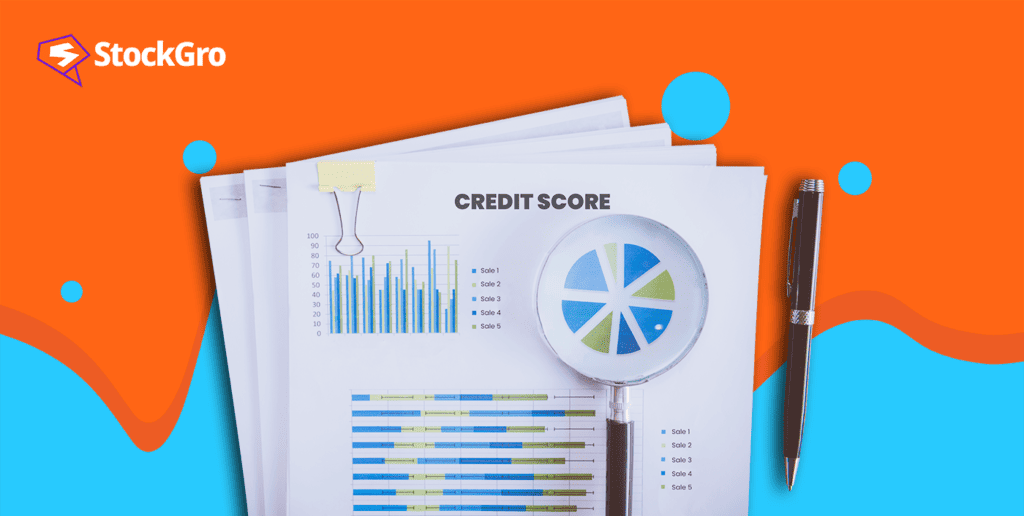
In the dynamic business world, creditworthiness is pivotal in shaping opportunities. A key player in this scenario is the commercial CIBIL report, a powerful tool that mirrors a company’s credit health.
Many lenders consider this report as the deciding factor in granting a loan. Let’s go on an adventure to learn all about the commercial CIBIL report and how it affects Indian businesses.
Understanding CIBIL commercial report
An indispensable instrument in the world of finance is the commercial CIBIL report, an exhaustive record that summarises the credit history of business entities. It gives a comprehensive rundown of everything a business has done with its credit, such as loans, credit card payments, inquiries, and more.
Credit Information Bureau (India) Limited (CIBIL), India’s pioneering credit information company, is responsible for producing the report.
While consumer CIBIL focuses on evaluating an individual’s creditworthiness through their personal credit history, commercial CIBIL focuses on evaluating a company’s creditworthiness through their commercial credit history.
The importance of the business CIBIL report should not be disregarded. It reflects a company’s financial discipline and creditworthiness. When determining whether to extend credit to a business, this report is a crucial tool for banks and other lending organisations.
A favourable report plays a crucial role in a company’s financial trajectory because it can lead to improved loan conditions and interest rates. Consequently, it is critical for companies to comprehend the significance of a good commercial CIBIL report and to keep it up to date.
Also read: What does a credit report contain? Here is everything you should know!
How to get commercial cibil report?
Credit information is the starting point for creating a commercial CIBIL report. Lenders and financial institutions in India report their business borrowers’ credit information to CIBIL. This information is the backbone of the commercial CIBIL report and includes specifics regarding credit utilisation, repayment history, and any defaults.
How to get a commercial CIBIL report? These are the procedures to follow in order to get a commercial CIBIL report.
- Visit the website: Head over to the official CIBIL website.
- Form filling: You’ll find an application form requiring details such as the company’s legal constitution, registered address, applicant’s contact information, PAN, and other relevant data.
- Payment: A subscription fee of ₹3000 is required, payable through various digital methods.
- Confirmation: Post payment, CIBIL assigns a unique Registration ID & Transaction ID to your request, which you’ll receive via email.
- Document submission: The final step involves uploading all necessary KYC documents.
Regarding the matter of how to download a commercial CIBIL report, after the request has been processed, CIBIL will send an email containing a download link. Following that, you will be able to save the report to your computer for future reference. The purpose of this simple procedure is to make it easy for companies to access their credit reports.
What are the elements that impact the rating?
Gaining familiarity with the CIBIL Commercial Report (CCR) is merely the initial stage. Let’s delve into the specific parameters that shape the CCR:
Credit history: A company’s credit history length is a major factor affecting the CCR. In most cases, a more favourable report will accompany a longer history.
External or outstanding debts: The CCR might take a hit depending on the total amount of money owed by a business. It is critical to manage these debts effectively because credit institutions consider the total amount.
Credit to debt ratio: This ratio shows how much of the company’s credit has been used. A higher ratio indicates that the company is using its borrowed funds at a faster rate, which could have a negative impact on the CCR.
Previous history: A strong indication of financial health that can positively affect the CCR is the timely payment of EMIs for borrowed operational funds.
Company profile: Consideration is given to the company’s size and age. Many people have more faith in a well-established business with a solid track record of profitability than in a brand-new startup.
Operating sector: The CCR may face different degrees of risk depending on the industry in which the company operates. Companies in the more speculative oil and gas sector, for instance, might be perceived as less reliable than those in the more secure banking or insurance sectors.
Impact of CIBIL commercial report on loan decisions
Lenders heavily rely on the CIBIL commercial report when making decisions. In a sense, it’s a reflection of a company’s creditworthiness. Financial institutions and banks use this report to learn about a company’s payment history and credit behaviour.
The likelihood of a business getting a loan is greatly increased when its commercial CIBIL report is positive, showing prompt repayments and a good mix of credit. You may also be able to negotiate more favourable loan conditions, such as reduced interest rates and increased credit limits. Find out the steps required for business loan application and documents required in this guide.
Conversely, lenders could be cautious of a company that has a negative report highlighted by defaults or late payments, which can make obtaining credit difficult.
The CIBIL commercial report serves as more than just an evaluation of a company’s fiscal responsibility; it is a potent instrument that can either open or shut doors to potential credit opportunities. Therefore, businesses must keep their reports in good shape if they want to get loans and expand.
Also read: Credit history: What is it and why it matters?
Improving your CIBIL commercial report
When looking for credit, a strong CIBIL commercial report can make all the difference for businesses. Some suggestions regarding how to improve or how to update the commercial CIBIL report are as follows:
- Timely repayments: Make sure that all loans and credit card payments are made on time. To establish a good credit history, this is the best course of action.
- Credit utilisation: Keep your credit utilisation ratio low. High utilisation indicates a dependence on credit and could lead to a low credit score.
- Diverse credit portfolio: Keep a balance between secured and unsecured loans, such as term loans and credit cards. A higher score may be possible as a result of this variety.
- Limit credit enquiries: Multiple loan applications in a short period might lower your credit score if lenders notice this.
- Regular monitoring: Check your report for inconsistencies regularly and fix them right away if you find any.
Lenders routinely report changes to CIBIL, so any shifts in your credit behaviour will show up in your report without you having to do anything. However, you have the option to file a dispute with CIBIL to have any errors corrected in your report.
You should keep in mind that a solid CIBIL commercial report demonstrates that you are financially responsible and have good credit. Maintaining it will be worthwhile!
Also read: Everything you need to know about credit ratings
How to raise a dispute in CIBIL?
Here’s how you can raise a dispute in CIBIL:
1. Log in to the CIBIL dispute portal
First, you need to visit the official CIBIL website and log into your account. If you don’t have an account, you’ll have to create one using your business’s details, including company name, registration number, and contact information.
2. Access the credit report
Once you’ve logged in, go to the ‘Dispute Center’ tab and access your CIBIL report. Review the report carefully for any discrepancies in information, such as incorrect outstanding amounts, payment defaults, or any closed loans still showing as active.
3. Fill out the dispute form
After finding the errors, fill out the dispute form. CIBIL allows you to select the type of error from predefined categories, such as “Incorrect Account Details” or “Ownership Issues.” You can provide supporting details, like the account number and the correct information you believe should be reflected in the report.
4. Submit the dispute
Submit the form after completing all required fields. Once done, you’ll receive an acknowledgment with a unique Dispute ID. You can use this ID to track the status of your request.
5. Verification by CIBIL
Once submitted, CIBIL will forward your dispute to the respective financial institution for verification. This process typically takes 30-45 days. The institution will confirm whether the information is accurate or needs correction.
6. Receive resolution
After the verification process is completed, CIBIL will notify you of the resolution via email. If your dispute is valid, CIBIL will update your report, and you can download the revised version from their portal. However, if the dispute is rejected, you’ll need to follow up directly with the lender.
How to check company CIBIL score?
It is crucial to understand your company’s credit score as it serves as an indicator of your business’s financial health and creditworthiness. Lenders rely heavily on this score to decide whether to approve loans or offer favorable terms. Here’s how you can check your company’s CIBIL score:
1. Visit the CIBIL website
To begin, go to the official CIBIL website (www.cibil.com) and go to the section dedicated to business credit reports. CIBIL provides a specific service for commercial credit reports for businesses.
2. Fill out the application form
The form typically requires the legal name, registered address, PAN, and other important details related to your business. Make sure all information is accurate to avoid delays in processing your request.
3. Pay the fee
You need to pay a subscription fee of ₹3000 to access your company’s CIBIL score. You can pay the fee through various digital payment methods available on the website, like credit cards, debit cards, and net banking.
4. Receive confirmation
After making the payment, CIBIL will send a confirmation email with a unique Registration ID and Transaction ID. These will help you track your application or resolve any issues that arise during the process.
5. Document submission
You’ll need to upload the necessary KYC documents to verify the identity of your business. These typically include your company’s PAN, proof of registration, and proof of the registered office address. Make sure that the documents are up to date and properly scanned.
6. Download the CIBIL report
Once the documents are verified and the payment is confirmed, you’ll receive an email with a link to download your commercial CIBIL report. This report contains the credit score, repayment history, credit utilization ratio, and other financial details related to your business.
Bottomline
The CIBIL commercial report is more than just a document in the world of business finance; it is a potent tool that points companies in the direction of credit opportunities. It has a significant impact on a company’s financial strategy and future growth, going beyond just loan approvals.
A strong CIBIL commercial report can serve as a beacon for businesses as they navigate the treacherous financial waters. Therefore, guiding your business towards prosperous shores requires understanding and optimising this report.

